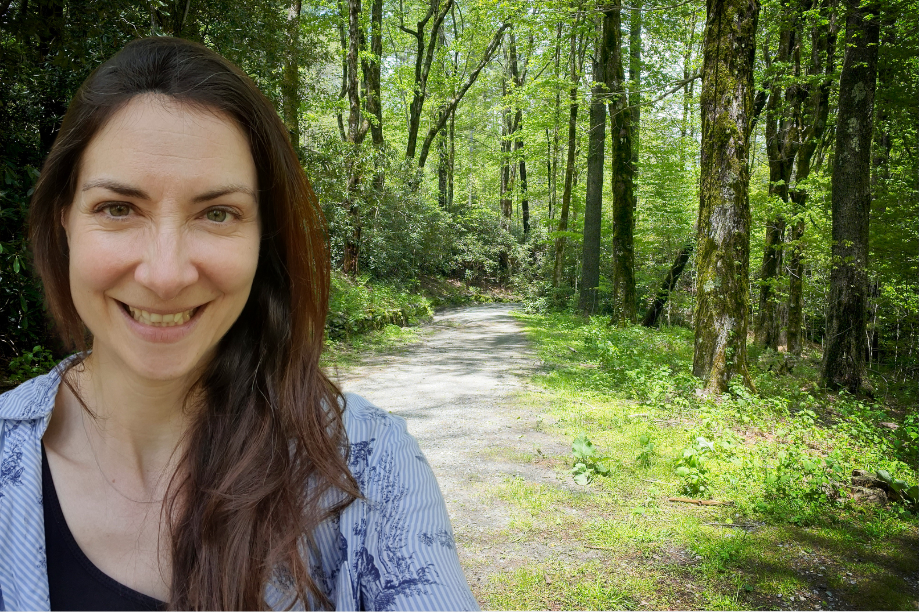Clinical psychologist and BAMBA-registered mindfulness teacher, Kate Foxwell, shares her learning and staff’s experiences of mindfulness drop-in sessions within a UK National Health Service (NHS) trust, arguing for the need to embed the value of mindfulness within the culture of the NHS.
I remember holding the raisin- it was importantly two in fact- surrounded by other clinicians and three mindfulness teachers, one of whom was Prof. Mark Williams. The latter detail was not lost on me. Those of you who have experienced the raisin meditation will know that we were invited to explore the raisin as though we had never come across one before. Having swallowed it, we were invited to go through a similar process with the second. I noticed a sinking through my body which made my legs tingle, upon realising I wasn’t meant to have eaten both raisins together… I then went on to ‘mindfully’ lift an imaginary raisin to my mouth, and pretend to chew it.
The learning that came from this experience: how tricky these minds of ours can be; the power that comes from attending to the body; our ability to pause; and the choices available to us in that space, were instrumental to my subsequent practice and training as a mindfulness teacher.
Working within the NHS
I have worked for the NHS for 19 years, and know how tough it can be as a staff member within the system. Experiences of chronic stress and burnout results in a workforce depleted, both in number and well-being (The King’s Fund, 2020).
I trained to teach Mindfulness Based Cognitive Therapy (MBCT) in 2011, and have seen its value in my work with clinical populations within the NHS, as well as with doctoral trainees. More recently I was working in a small Psychology staff support service within an acute trust, designing and delivering workshops to support the psychological well-being of hospital staff. I requested to also offer mindfulness sessions, and was supported to participate in the Mindfulness-based Cognitive Therapy for Life (MBCT-L) programme run by Oxford Mindfulness. Following this, I undertook the two-day branch teacher training.
Ideally, staff would be able to access eight-week mindfulness courses, and I make acknowledgement here to Crane et al.’s (2017) call for building the evidence-base of adapted mindfulness-based programmes. However, it is frequently the case that opportunities to undertake an eight-week course are not available for staff within their work, or feel that they have the right or permission to take time to care for themselves, in a stretched, stressed and subsequently threat-system based (Gilbert, 2020) workplace.
What was offered
The need to ‘meet people where they are’ (see Claire Kelly’s blog, April 2024) appears to be a prominent conversation playing out amongst trainers, clinicians and researchers alike (Loucks et al., 2022). Under Claire’s supervision, alongside generous initial guidance from other clinicians providing adapted mindfulness offerings to staff, I developed a series of 30-minute mindfulness drop-in sessions which ran weekly in the middle of the working day. These were open to all staff within the Trust. The sessions used MBCT-L as a basis, supplemented with ideas from Compassion Focused Therapy and Mindful Self Compassion.
The sessions were advertised on the global email and Trust intranet. 97 staff members signed up, of whom 94% were female, 18.5% from an ethnic minority background, and who worked for a range of pay scales in both clinical and non-clinical jobs. Three themes emerged around motivations to join: feeling a need to prioritise one’s own mental health; experiencing distress due to work pressures; and a hope to learn or deepen mindfulness skills felt to be helpful, such as being ‘more present in my body and not living in my head.’
The sessions ran weekly online. Following each session, I emailed everyone who had signed up and posted suggestions for home practise on an MS Teams channel that all were included on. I shared recordings of guided meditations with the kind permission of Oxford Mindfulness, as well as new habits in everyday life suggestions, poems and resources which were relevant to the session.
The value of the mindfulness intervention
The sessions ran on 25 dates over eight months. An average of 10 people per session attended, with additional staff ‘following along’ via the posts and recordings uploaded. I had imagined prior to starting the sessions that staff’s attendance would be sporadic. This didn’t in general turn out to be the case, with a large committed group of regular attendees emerging over the course of the sessions. There were however new members joining throughout, right up to the final session.
At the close of the sessions, when asked ‘how helpful have the mindfulness offerings been to you and your work?’ on a scale of 0-10 (0= not helpful, 10= very helpful), the average rating was 9.26 from the 19 staff members who responded. All stated that they would like further mindfulness interventions offered by the Trust, once the drop-in sessions finished. Staff described feeling that they were calmer and kinder to themselves, and that they felt more resourced to manage when times were tough:
Even really simple things like the poem ‘Beyond the Bend in the Road‘ (something I’d never find myself) was so helpful. I started using this immediately and now, when fretting and ruminating about simply everything (happens a lot) I just pause and say to myself ‘remember the bend’ and I stop my fretting.
Feeling cared for within and by the group was another theme that emerged. Claire guided me in understanding that the sessions needed to be resourcing more than explorative, and staff feedback indicated that they found the more ‘teaching’ aspects around mindfulness less valuable, rather wanting a space to stop and meditate. Or sometimes, just to stop. The frame of the group was therefore one of warmth, compassion, and hopefully some lightness. I learnt to hold this for myself too, in the trickiness I experienced in trying to navigate a path for the sessions which balanced staying close to the MBCT-L model, as well as allowing myself freedom to use additional resources that felt appropriate and helpful to the group.
As a facilitator, the sense of community and common humanity (Neff, 2003) which developed over the weeks was one of the most powerful aspects to witness. As one staff member said:
Each week I see some of the same people, plus some new people (inc. senior doctors and very high up operational staff)! I think that shows just how necessary these sessions are for all kinds of staff across the trust. The fact that a variety of staff from different aspects of the hospital all attend the sessions also creates a real feeling of community, and reminds me that all kinds of people are struggling with stress, making me feel a lot less lonely.
Staff’s relationship with work and the organisation
The sessions occurring within the working day meant that for some, it directly impacted how staff showed up for themselves in this environment:
The sessions have served as a really helpful reminder to pause, reflect and reconnect with myself during my work day.
Staff also talked of the ways in which the skills learnt from the sessions helped them more globally in managing the ‘tremendously negative effects on mental health’ of their work.
Whilst staff spoke of a sense of permission being given with the sessions offered within the Trust, it is also relevant to note that staff often attended in their lunch breaks, whilst off sick from work with stress, and from home when on a day off:
I tried to attend all sessions but was on non-work day and couldn’t always free myself. That said, some work days are so busy that I could almost guarantee that I would have attended none if it had been on work day.
As such, there was a way to go for staff to feel that mindfulness was a valued part of their working day. Some, even when they did join from work, found it hard to be fully present. The sessions being online enabled significantly more staff to be able to attend, however the set up potentially most affected those with the least freedom or control of their work environment.
The need for more
There could be many reasons why staff members voiced a desire for more at the close of the drop-in sessions. Some felt in the early stages of their mindfulness journey:
Without the guidance of someone who knows what they’re doing I would literally just be repeating the same session all the time as I don’t have the expertise to tailor it to what I really need which is where our tutor was invaluable.
The felt loss of the sessions was also due to having valued the space:
They have been so enjoyable- a place where I felt safe to be me and report my experience honestly, a place of calm in, what for me felt like, stormy times, a place of acceptance for all, a place of learning and rejuvenation… I wish they could go on!
The sessions were unique offerings within the Trust: being open to all without pre-requisite need, skill or commitment; available during the work day; and grounded within an evidence based psychological model run by a trained facilitator. The sessions were experienced by staff as non-stigmatising, with a flourishing sense of community, mentioned earlier, accentuating this.
Endings
I know endings are important, and one potential advantage of a limited offering was that it might have helped staff who particularly struggled to prioritise themselves, to make time for them. Sometimes we need a deadline.
However, I also felt that providing a continued space for staff to build on their mindfulness skills as a community was important. The focus of my last few weeks working for the Trust therefore became trying to get this message heard. In supervision, Claire suggested finding ‘who I most needed to sit down and have a cup of tea with,’ and who held influence over the future of the mindfulness offerings. After a presentation to my manager and team, I went about trying to make a tea date with the Chief Executive Officer (CEO) for the hospital, and his Director for People. There was some laughter when I shared with the mindfulness group community that I was mindfully attending to the anxiety raised by this prospect.
Whilst a date was set, and cancelled with the promise of being reorganised, it unfortunately did not occur. I did however send the presentation to the CEO and Director for People. If we had have met, the following is what I would have liked to have said.
A push for culture change
We know that core learning from mindfulness programs include greater present moment focus, decentring from experience, greater skills in self-regulation and engagement in qualities such as compassion (Crane et al., 2017). These are essential for us all, particularly when exposed to environments high in stress and distress, as your staff are.
However, these interventions cannot be offered alone for people to necessarily thrive within the workplace. A highly regarded randomised controlled trial by Strauss et al (2021) demonstrated the impact of MBCT-L programmes on reducing stress, depression and anxiety in NHS workers, and improving well-being. Mindfulness is one of few approaches recommended in the National Institute for Health and Care Excellence (NICE) mental well-being at work (2022) guidelines ‘for employees who have or are at risk of poor mental health.’
However, whilst MBCT-L improved individual indicators of well-being, the intervention was not found to affect work-related measures for staff- including burnout (Strauss et al., 2021).
Arguably therefore, whilst mindfulness can be part of an antidote, organisational-level interventions also need to be in place, that enable structural and systemic change, such as sufficient staffing and compassionate leadership. And for mindfulness offerings to truly embed within the culture, explicit support and permission giving needs to be provided from those in positions of power. As one staff member said:
To get best benefit it would be good if culture could change so that it was just ‘the done thing’… to offer during the working week and make a push to create a culture where it is ‘acceptable’ for staff to do it.
I recognise that in a culture of underfunding and overdemand, it is unfortunate but necessary to make a financial argument. Our NHS workers are more stressed and unwell than those in other public sector roles (Triggle, 2023). Those leading trusts need to look at the costs of employing skilled, trained mindfulness practitioners on a permanent basis- potentially for as little as a few hours a week- to offer a consistent space which can support their employees’ well-being:
I wish the CEO knew just how much these sessions support staff mental health and contribute to reducing sickness from stress. Having the Trust provide them, tells me that the Trust values me.
The hope however would be for staff not just to simply manage, but to flourish. To quote Nye Bevan: ‘The NHS will last as long as there are folk with the faith to fight for it,’ and as a good friend and colleague of mine, Dr Ashlyn Firkins, suggests, ‘… and the emotional and physical health to do so.’
So, this too is an attempt- for NHS staff in whatever trust they might be working- for this to be heard by the person who needs to hear it, reading this, whilst drinking a cup of tea. Or perhaps eating a raisin.
Acknowledgements
My sincere thanks to the NHS staff for all you gave to our community and for sharing your experiences. Thank you for continually showing up, in all the ways you did, and do, in your work.
Beyond the Bend in the Road by Fernando Pessoa, 1914
Beyond the bend in the road
There may be a well, and there may be a castle,
And there may be just more road.
I don’t know and don’t ask.
As long as I’m on the road that’s before the bend
I look only at the road before the bend,
Because the road before the bend is all I can see.
It would do me no good to look anywhere else
Or at what I can’t see.
Let’s pay attention only to where we are.
There’s only enough beauty in being here and not somewhere else.
If there are people beyond the bend in the road,
Let them worry about what’s beyond the bend in the road.
That, for them, is the road.
If we’re to arrive there, when we arrive there we’ll know.
For now we know only that we’re not there.
Here there’s just the road before the bend, and before the bend
There’s the road without any bend.
References
Crane, R. S., Brewer, J., Feldman, C., Kabat-Zinn, J., Santorelli, S., Williams, J.M.G., & Kuyken, W. (2017). What defines mindfulness-based programs? The warp and the weft. Psychological Medicine, 47(6), 990-999.
French, L., Hanna, P., & Huckle, C. (2022). “If I die, they do not care”: UK National Health Service staff experiences of betrayal-based moral injury during COVID-19. Psychological Trauma: Theory, Research, Practice, and Policy, 14(3), 516-521. Available at: https://doi.org/10.1037/tra0001134 [Accessed 7 June 2023].
Gilbert, P. (2020). Compassion: From Its Evolution to a Psychotherapy. Frontiers in Psychology, 11:586161. DOI: 10.3389/fpsyg.2020.586161 [Accessed: 30 November 2023].
Kelly, C. (2024). ‘Meeting People Where They Are’ – Introducing Mindfulness (IM) for Beginners. Oxford Mindfulness Blog. Available at: https://oxfordmindfulness.org/meeting-people-where-they-are-introducing-mindfulness-im-for-beginners [Accessed 16 May 2023].
National Institute for Health and Care Excellence (2022). Mental wellbeing at work: NICE Guideline. NG 212. Available at: https://www.nice.org.uk/guidance/ng212 [7 March 2023].
Neff, K. (2003). Self-Compassion: An Alternative Conceptualization of a Healthy Attitude Toward Oneself. Self and Identity, 2(2):85-101. Available at: 10.1080/15298860309032 [Accessed 1 February 2024].
Strauss, C., Gu, J., Montero-Marin, J., Whittington, A., Chapman, C., & Kuyken, W. (2021). Reducing stress and promoting well-being in healthcare workers using mindfulness-based cognitive therapy for life. International Journal of Clinical and Health Psychology, 21(2), May–August. Available at: https://doi.org/10.1016/j.ijchp.2021.100227 [Accessed 16 May 2023].
The Kings Fund (2020). Written evidence submitted by The King’s Fund (WBR0017). Available at: https://committees.parliament.uk/writtenevidence/10944/pdf/ [Accessed 4 September 2024].
Triggle, N. (2023). NHS staff sickness hits record high in England. BBC, 29 June [Online] Available at: https://www.bbc.co.uk/news/health-66047270 [Accessed 19 November 2024].




